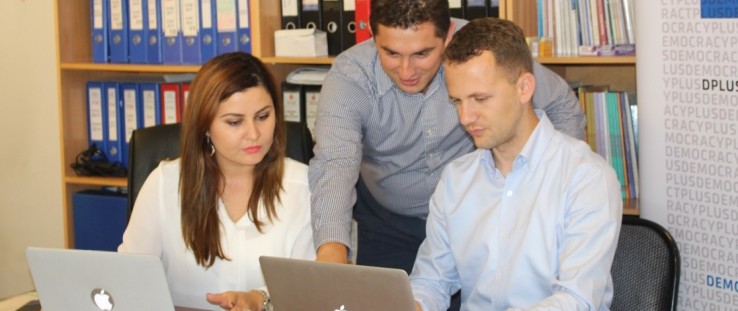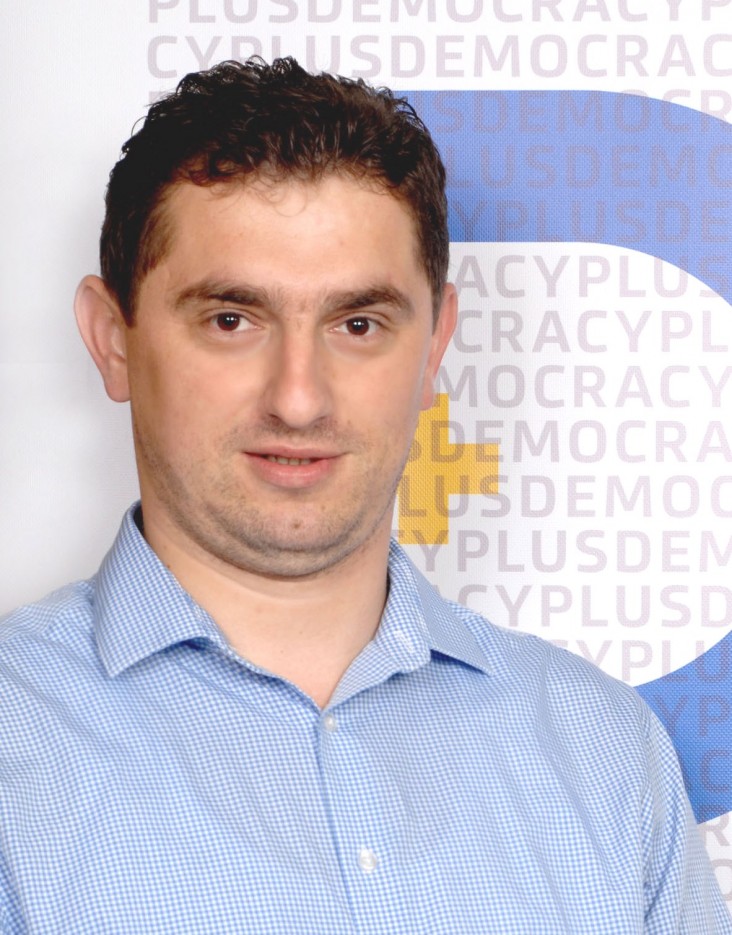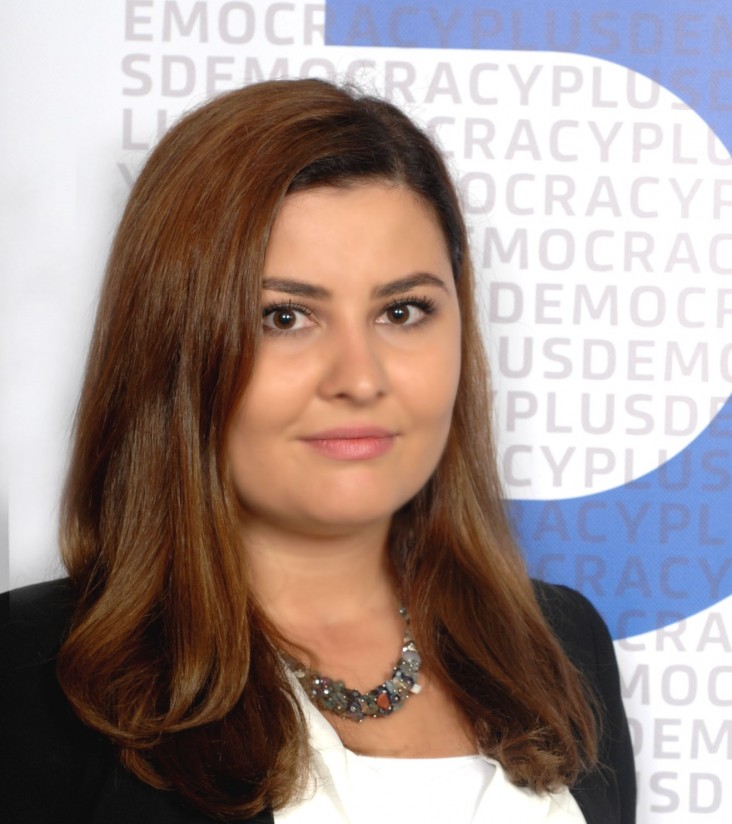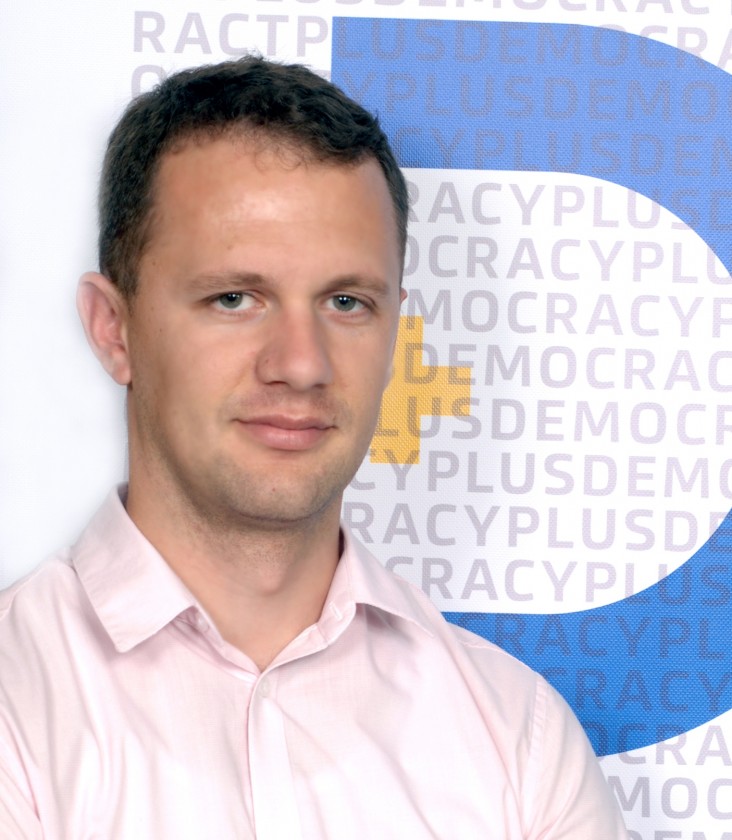 Left to right: Roberta Osmani, Valmir Ismaili and Isuf Zejna
D+
Left to right: Roberta Osmani, Valmir Ismaili and Isuf Zejna
D+
 Left to right: Roberta Osmani, Valmir Ismaili and Isuf Zejna
D+
Left to right: Roberta Osmani, Valmir Ismaili and Isuf Zejna
D+
Speeches Shim
Valmir Ismaili is a man with a vision, commitment and the drive to make that vision a reality.
Working with like-minded civil society activists, Ismaili is leading an effort to advance government accountability, improve democratic systems and create a more inclusive society in his native Kosovo.
In March, Ismaili, along with fellow activists, founded Democracy Plus, also known as D+. It focuses on three main topics: good governance and the rule of law, political parties and elections, and social issues and human rights. The team of six young adults designs, manages and implements projects around each theme.
Ismaili, 32, and several of his D+ colleagues are also graduates of USAID’s Transformational Leadership Program (TLP), a scholarship that brings young people from Kosovo to the United States to complete a master’s degree or certificate. These students then return to Kosovo with the skills to guide their country toward a better future.
Ismaili said he applied for the TLP because he saw “an opportunity to return to school and gain more insights into the process of democratic change and public policy,” adding that he felt that “TLP was my opportunity to get the best education in the field, and bring back the much-needed know-how to Kosovo.”
“I worked in civil society for 10 years before USAID’s Transformational Leadership Program,” said Ismaili, who completed his master’s degree at the Illinois Institute of Technology. “When I came back to Kosovo last summer, I began thinking about my experience in the United States and how I could put it to use in improving the current state of affairs in Kosovo. The idea for Democracy Plus began after talking to friends with similar values.”
Ismaili expanded his idea to include three other students in the TLP—Roberta Osmani, Isuf Zejna and Ngadhnjim Halilaj. Now back in Kosovo, they are putting their knowledge and the skills they gained while studying in the United States to good work.
What follows is a conversation with Ismaili about the transformation he and colleagues hope to see—and be a part of—in Kosovo.
FrontLines: What experiences shaped your views on democracy?
Valmir Ismaili: I began my career as an intern at the National Democratic Institute (NDI) in 2002, at the time when Kosovo’s democratic institutions were just being established. I was among the first interns in the Assembly of Kosovo, where I learned the basics of how the parliament works, the role of political parties and how to work with constituencies. This was my first opportunity to contribute to the development of democratic institutions in Kosovo. I have since worked in electoral reform, transparency and accountability of local governance.
FrontLines: Why did you apply for the Transformational Leadership Program?
Ismaili: I considered TLP an opportunity to gain more insights into the process of democratic change and public policy. I also valued the prospect of learning about these processes from the U.S. perspective; we see the U.S. as a model democracy. I have always believed that Kosovo needs competent and energetic people to strengthen its public institutions and design policies that fit the needs of the country. TLP was my opportunity to get the best education in the field, and bring that knowledge back to Kosovo. I strongly believe in instilling a work ethic based on meritocracy rather than political affiliations, and professionalism rather than nepotism in all public institutions in Kosovo. This will remain my main goal in my current and future work.
FrontLines: What motivated you to start D+ and why does Kosovo need an organization like yours?
Ismaili: During my studies in the U.S., I had the chance to discuss ideas with other TLP scholars. We realized that we can collaborate to materialize our joint purpose of strengthening democratic institutions in Kosovo. D+ is among the few organizations in Kosovo where a majority of staff have master’s degrees from U.S. universities, but our work is complemented by the locally educated members who have extensive experience in nongovernmental organizations. D+ plans on hiring members from non-majority communities in Kosovo because we believe in the strength of diversity and the values of inclusive work environments.
FrontLines: Where do you get your inspiration?
Ismaili: We take pride in our strong team spirit at D+ and are fully committed to realizing our ideas to help develop our country. Members of my team are the ones who inspired me to establish D+ and motivated me to give my best on a daily basis in pursuit of our mission. I believe that the key to success is having a wide network of people who support you in all aspects and I consider myself lucky to have that.
FrontLines: What advice would you give to other young people who would like to strengthen democracy?
Ismaili: I have two pieces of advice. First, use every opportunity that comes your way, be it an internship or a volunteer work assignment, as they will help you achieve your professional goals in ways that you cannot see immediately. Secondly, believe in change and have a long-term vision for change because democratic development does not come quickly. If you are persistent and believe in what you are doing, you can and will make a positive difference in your country and in mobilizing your fellow citizens to take a more active role.
FrontLines: Do you see any opportunity for the work you’re doing to be applied to other parts of the world?
Ismaili: Absolutely. There are many countries in need of a stronger civil society to contribute to the democratic processes and are facing challenges similar to those in Kosovo. Fortunately, there are development agencies such as USAID that constantly help young activists and researchers to get together and establish organizations that take on similar initiatives as D+.
This Q&A has been edited for length.





Comment
Make a general inquiry or suggest an improvement.